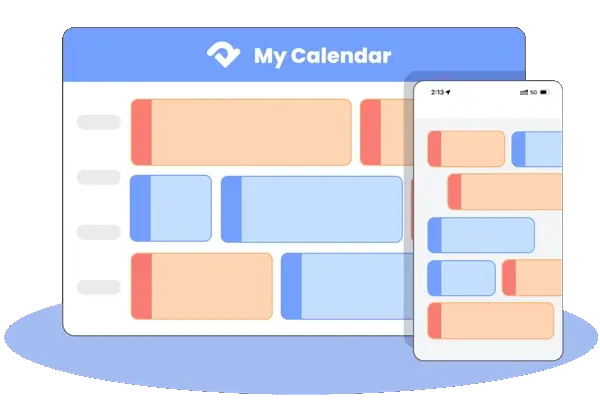A guest approaches your front desk with a scowl and a frustrated tone. Every hotel professional knows this scene. While it might seem like a moment of crisis, a guest complaint is truly a crucial opportunity. The way a Front Desk team handles this situation can define a guest’s entire stay and leave a lasting impression on the hotel's reputation. It’s not about just fixing a problem; it’s about demonstrating empathy, professionalism, and a genuine commitment to a positive Guest Experience.
Moving beyond a simple "I'm sorry," a strategic approach to handling complaints can turn a negative encounter into a powerful moment that builds brand loyalty. This is the difference between a guest who leaves and never returns and one who becomes a vocal advocate for your hotel.
The Foundational Mindset: Principles Before Action
Before you solve a problem, you need the right attitude. A receptionist's reaction sets the tone for the entire interaction.
- Stay Calm and Professional: When a guest is upset, their frustration is rarely a personal attack on you. It’s a reaction to their situation. Your calm demeanor is the single most powerful tool for de-escalation. By remaining composed and speaking in a steady, even tone, you project confidence and control, which helps to soothe the guest's frustration.
- Listen Actively and Empathetically: A person who feels heard is more likely to calm down. Give the guest your full, undivided attention. Avoid interrupting, even if you know the solution. Use non-verbal cues like nodding and maintaining eye contact to show you are engaged. This isn’t just waiting for your turn to talk – it’s really trying to see the problem from their side.
- Take Ownership Without Admitting Fault: This is key in hotels: there’s a difference between saying “we messed up” and saying “I’ll fix this.” Say you’re truly sorry for the trouble they’re having. That doesn’t mean the hotel was wrong – it means you care that they’re upset. For example, "I am so sorry for the inconvenience this has caused you" is a perfect phrase. It acknowledges their feeling without a specific admission of blame.
A Strategic Action Plan: The HEART Method
Here’s an easy way to remember how to fix guest problems: the HEART method. It walks you through the whole process, from when they first walk up upset to when they leave happy.
H - Hear:
Let the guest tell their whole story without cutting in. Sometimes just getting their frustration out helps them calm down. It’s essential to listen for the core issue, as the initial outburst might not reveal the full story. For instance, a guest might complain about the loud noise from a neighboring room, but the underlying issue is that they have a crucial presentation in the morning and haven't slept.
E - Empathize:
After listening, validate their feelings. You are not agreeing with their anger, but you are acknowledging their frustration. Phrases like, "I can see why that would be frustrating," or "I would be upset in that situation too," show genuine understanding. This step transforms the interaction from a confrontation into a collaborative effort to solve a problem.
A - Apologize:
Offer a sincere and direct apology. This should be concise and heartfelt. No excuses. Something simple like, “I’m really sorry this happened and messed up your stay” works wonders.
R - Resolve:
This is when you offer solutions. Depending on what went wrong, you might have a few options. The key is to give clear, real fixes that tackle their specific problem. If something’s broken in their room, you could send maintenance right away or move them to another room. If they waited too long to check in, maybe offer free breakfast or a drink at the bar.
Always have a few options ready and ask which one they’d prefer. This helps them feel in charge of the situation again.
T - Thank and Track:
Thank them for telling you about the problem. This shows their complaint helps us improve. It’s also important to follow up. Let them know you’ll come back personally to make sure things are fixed to their liking. This proves you care about more than just this one problem. For example: “I’ll get our maintenance on that right away, and I’ll check back in an hour to make sure it’s fixed.”
Applying the Method: Common Complaint Scenarios
The HEART method works for most problems, but how you use it depends on the situation. Knowing how to adapt your response is a sign of true expertise.
Noise Complaints
A guest is upset about loud neighbors. After hearing them out and empathizing, you could knock on their door and remind them about quiet hours. If the noise continues, offer the guest a different room. You can also give them free earplugs as a quick fix.
Dirty Rooms or Housekeeping Issues
If a guest says their room wasn’t cleaned well, act fast. Say you’re sorry and call housekeeping to clean it again. If the guest prefers not to wait, offer a room change to a clean, available room. Offering a small amenity like a bottle of wine or a meal voucher can help soothe the guest’s frustration.
Maintenance Problems
When a guest tells you their AC is broken or the TV won’t work, start by saying you’re sorry. Next, call maintenance right away. Tell the guest honestly how long the fix might take. If it’ll take too long or can’t be fixed at all, move them to a different room. It’s smarter to offer a new room right away than to make them wait for a repair that might not happen soon.
Service Complaints
If a guest waited too long at check-in or felt ignored, show you care. This type of complaint requires a high level of empathy. Apologize for the specific service failure and take immediate, personal action to correct it. If they needed a restaurant recommendation, you should offer a few great options and perhaps even make a reservation for them. If they were waiting for a luggage cart, personally retrieve it for them.
Beyond the Interaction: Building a Better Hotel
How you handle a guest’s problem matters way beyond that one moment. It’s key to running a good hotel.
A guest whose problem you fixed well often becomes more loyal than someone who had a perfect stay. Fixing issues shows what your hotel is really like and proves you care. This leaves a strong, good feeling that can lead to great online reviews and people telling others about you. The guest who was upset can turn into a regular customer and even a cheerleader for your hotel.
Also, every complaint gives you a clue. By keeping track of problems, you can spot patterns and fix things. If many guests say the Wi-Fi is slow, it’s time to get faster Wi-Fi. If noise complaints keep coming from one area, maybe move business travelers to quieter floors. This feedback helps you keep making things better for everyone’s stay.
Conclusion
A receptionist does more than just check guests in and out. They fix problems, represent the hotel, and are the first to protect its reputation. When they care about guests and follow clear steps, front desk staff can turn a bad situation around and leave guests with a good, lasting memory.

